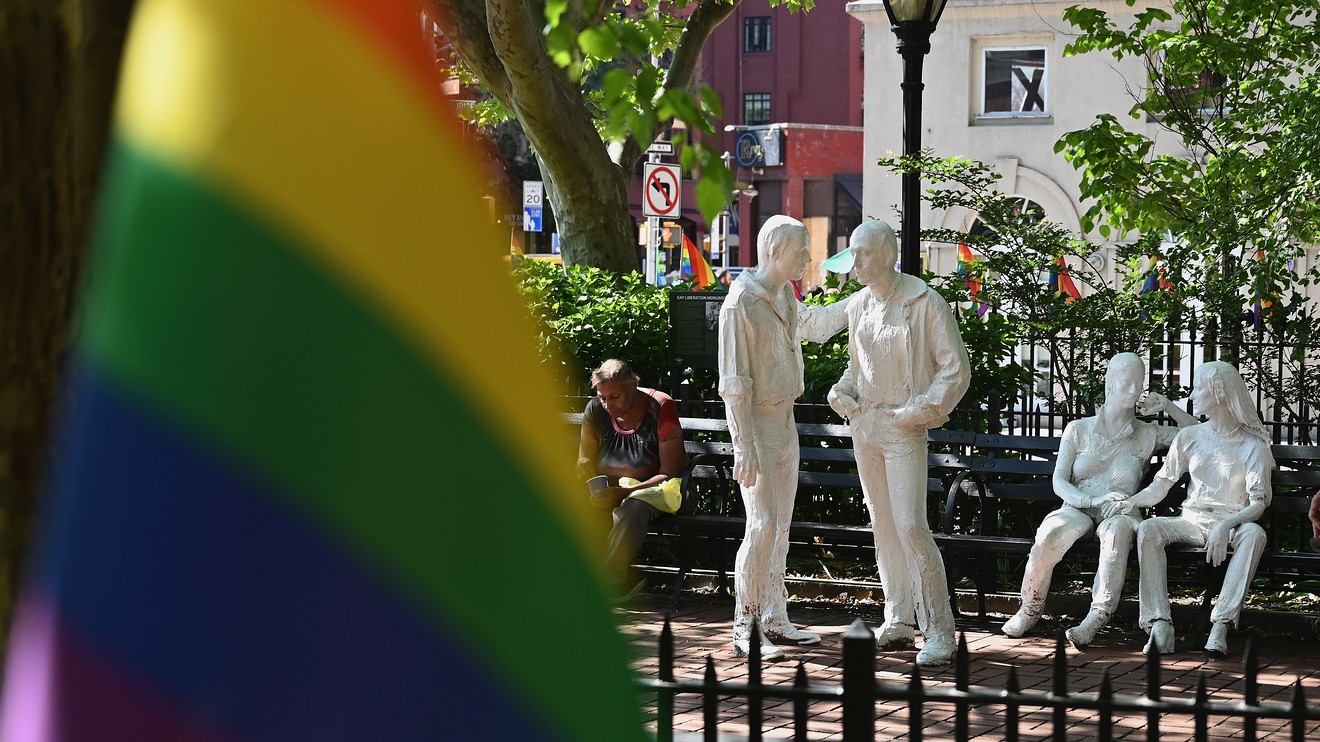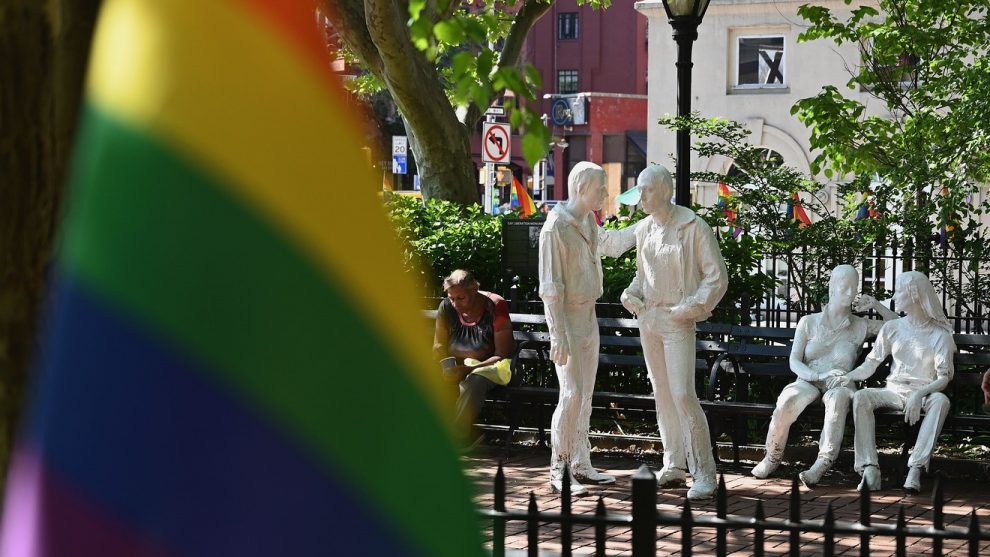
Americans’ opinions about gay people and their rights have undergone a 180-degree shift in the span of a generation, according to recent Gallup polling released during Pride Month.
But they still lag behind on certain issues.
For example, 93% of people now believe that gay people should have equal rights with respect to job opportunities, compared to just 56% in 1977. LGBTQ advocates say even 93% of people is too low on such an issue, but some religious groups argue that religious institutions should have the right to decline staff based on sexual orientation.
Some 93% of people now believe that gay people should have equal rights with respect to job opportunities, compared to just 56% in 1977.
Attitudes on whether gay people should be hired for various occupations have also improved: Far more people are in favor of gay people being hired as salespeople (95% today versus 68% in 1977), doctors (91% versus 44%), armed forces (83% versus 51%) and elementary-school teachers (81% versus 27%).
While the share of respondents who say gay people should be hired to work in the clergy has doubled, the number now sits at just 72%, the lowest of the jobs listed.
These changes in opinion take on particular relevance today, given the Supreme Court’s announcement in April that it would hear three cases to determine whether federal workplace-discrimination protections under the 1964 Civil Rights Act apply to gay and transgender people.
Don’t miss: 5 freedoms gay Americans now have that they didn’t have six years ago
Meanwhile, 83% of Americans believe that gay or lesbian relations between consenting adults should be legal, versus 43% who thought the same four decades ago. (The landmark 2003 Supreme Court decision Lawrence v. Texas struck down state sodomy bans.) Again, LGBTQ advocates say anything short of 100% on such an issue is too low.
Views on whether gay and lesbian people should be allowed to adopt children have grown far more progressive, too: Three in four people are in support, compared to a mere 14% in 1977.
Views on whether gay and lesbian people should be allowed to adopt children have grown far more progressive, too: Three in four people are in support, compared to a mere 14% in 1977.
And more people — but not a majority — believe that a person was born gay, with 49% expressing that view in 2019 compared to 13% in 1977. Respondents were less likely to believe that sexual orientation was due to factors like environment and upbringing (32% today, versus 56% back then).
Gallup surveyed a random sample of 1,017 adults by phone between May 15 and May 30 for its most recent poll.
LGBTQ people still face discrimination and abuse
Despite progress in Americans’ views, many LGBTQ people still face substantial discrimination: A majority of LGBTQ Americans report experiencing slurs or offensive comments, according to a 2017 Harvard University study. One in five say they’ve been discriminated against for their sexuality or gender identity while applying for jobs (20%) or with respect to equal pay or promotion consideration (22%).
LGBTQ people also tend to fare worse financially than their straight, cisgender counterparts: They have more negative feelings about their personal finances, and research has shown that some have higher poverty rates.
Also see: A European airline has added non-binary gender options when booking flights
“Key legal and societal changes on LGBT issues have taken place in the U.S. over this time as well, and Americans’ views on these issues have undergone some of the most dramatic shifts in public opinion — including gay marriage, which hardly even registered as a goal for gay rights activists of the 1970s,” the Gallup report’s authors wrote.
“But while LGBT rights advocates can count many victories in recent decades as they celebrate the 50th anniversary of the Stonewall riots,” they added, “there are still areas where activists seek change.”












